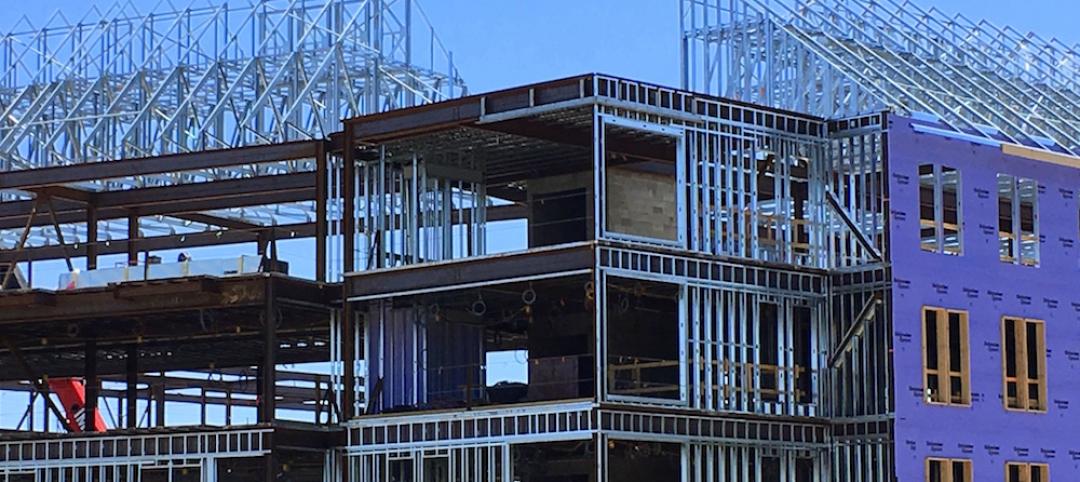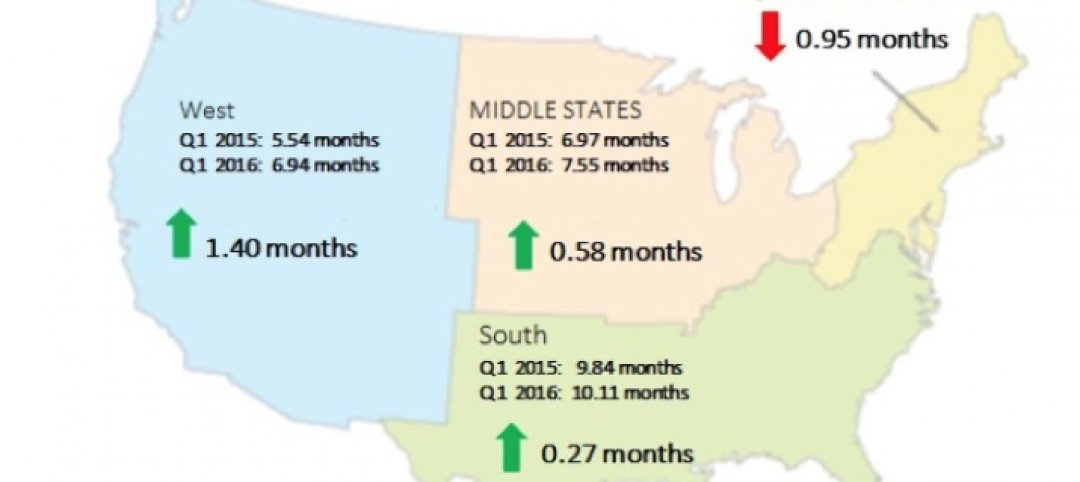Construction employment decreased from March 2020 to March 2021 in 203, or 57%, of the nation’s metro areas, according to an analysis by the Associated General Contractors of America of government employment data released today. Association officials said that the industry’s broader recovery in many parts of the country is being hampered by rising materials prices, supply chain disruptions and project cancellations.
“Nearly twice as many metros have lost construction jobs as gained them in the past 12 months, even though homebuilding has recovered strongly and the overall economy is in much better shape than it was a year ago,” said Ken Simonson, the association’s chief economist. “Nonresidential construction is still at risk of further declines in much of the country.”
Houston-The Woodlands-Sugar Land, Texas lost the largest number of construction jobs over the 12-month period (-31,000 jobs, -13%), followed by New York City (-24,000 jobs, -15%); Midland, Texas (-10,000 jobs, -26%); Odessa, Texas (-8,000 jobs, -39%); and Nassau County-Suffolk County, N.Y. ( 7,900 jobs, -10%). Odessa had the largest percentage decline, followed by Lake Charles, La. (-35%, -6,800 jobs); Midland; Longview, Texas (-24%, -3,600 jobs) and Greeley, Colo. (-21%, -4,100 jobs).
Only 104, or 29%, out of 358 metro areas added construction jobs during the past 12 months, while construction employment was stagnant in 51 metro areas. Seattle-Bellevue-Everett, Wash. added the most construction jobs over 12 months (5,300 jobs, 5%), followed by Indianapolis-Carmel-Anderson, Ind. (4,300 jobs, 8%); Austin-Round-Rock, Texas (4,000 jobs, 6%); Sacramento--Roseville--Arden-
Association officials said that construction firms were being squeezed by rapidly rising materials prices while they are unable to charge more for construction projects amid broader market uncertainties caused by the pandemic. They urged federal officials to ease tariffs on key construction materials – including steel and lumber – to address materials prices and to boost investments in infrastructure to boost demand.
“Construction employment is not going to rebound in many parts of the country while firms are struggling to afford the materials they need to complete existing projects,” said Stephen E. Sandherr, the association’s chief executive officer. “Once federal officials take immediate and effective steps to address both spiking prices and lagging demand, employment levels should rebound in more of the country.”
View the metro employment 12-month data, rankings, top 10, multi-division metros, and map.
Related Stories
Multifamily Housing | Aug 12, 2016
Apartment completions in largest metros on pace to increase by 50% in 2016
Texas is leading this multifamily construction boom, according to latest RENTCafé estimates.
Market Data | Jul 29, 2016
ABC: Output expands, but nonresidential fixed investment falters
Nonresidential fixed investment fell for a third consecutive quarter, as indicated by Bureau of Economic Analysis data.
Industry Research | Jul 26, 2016
AIA consensus forecast sees construction spending on rise through next year
But several factors could make the industry downshift.
Architects | Jul 20, 2016
AIA: Architecture Billings Index remains on solid footing
The June ABI score was down from May, but the figure was positive for the fifth consecutive month.
Market Data | Jul 7, 2016
Airbnb alleged to worsen housing crunch in New York City
Allegedly removing thousands of housing units from market, driving up rents.
Market Data | Jul 6, 2016
Construction spending falls 0.8% from April to May
The private and public sectors have a combined estimated seasonally adjusted annual rate of $1.14 trillion.
Market Data | Jul 6, 2016
A thriving economy and influx of businesses spur construction in downtown Seattle
Development investment is twice what it was five years ago.
Multifamily Housing | Jul 5, 2016
Apartments continue to shrink, rents continue to rise
Latest survey by RENTCafé tracks size changes in 95 metros.
Multifamily Housing | Jun 22, 2016
Can multifamily construction keep up with projected demand?
The Joint Center for Housing Studies’ latest disection of America’s housing market finds moderate- and low-priced rentals in short supply.
Contractors | Jun 21, 2016
Bigness counts when it comes to construction backlogs
Large companies that can attract talent are better able to commit to more work, according to a national trade group for builders and contractors.

















